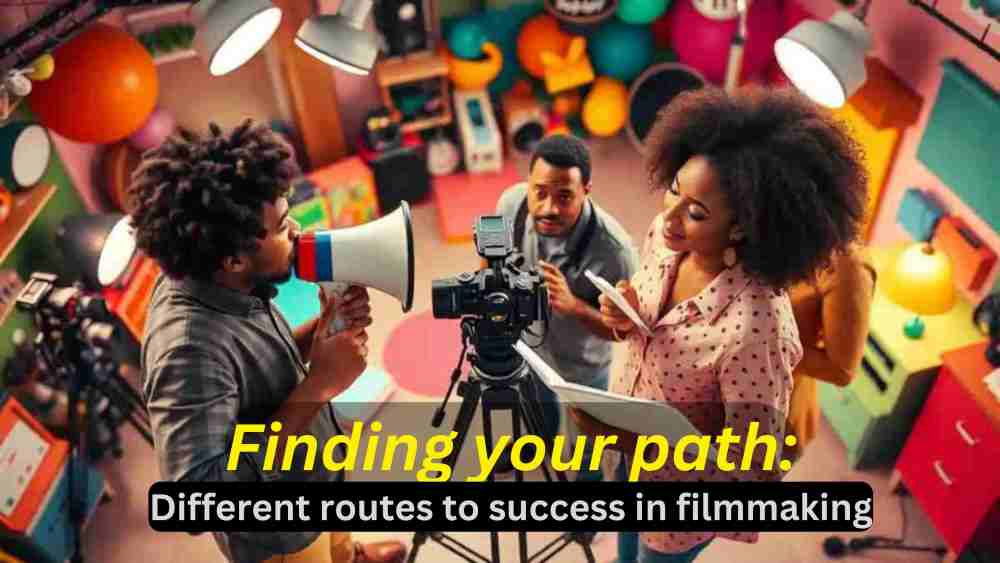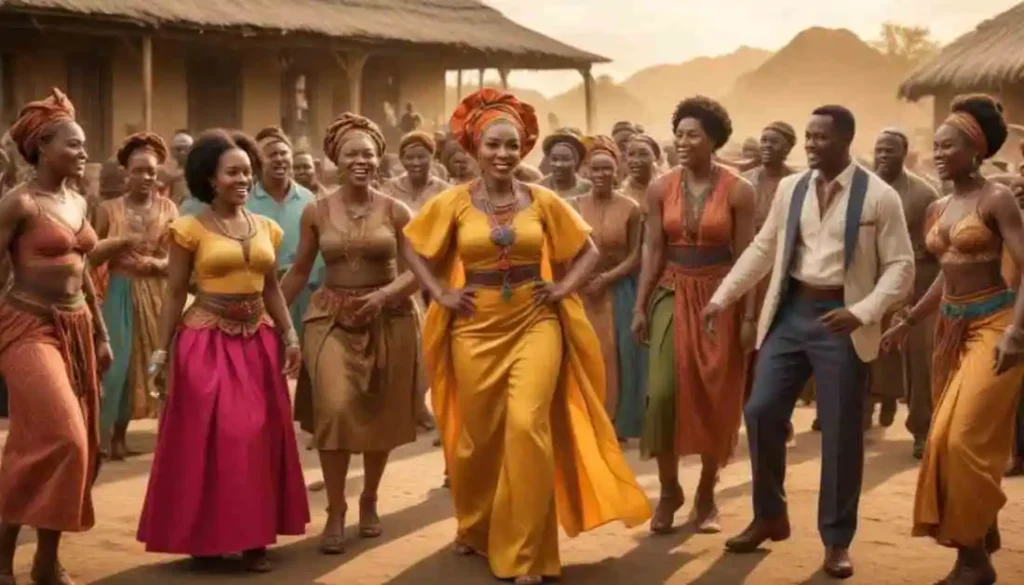s

Not long ago, a LinkedIn contact reached out to ask questions about career paths in filmmaking. The gentleman wanted to know about other opportunities aside acting.
In this article, we want to answer his question by exploring the varied job opportunities in filmmaking.
Whether you are new to filmmaking or are thinking of switching roles, this post will help you navigate the various career options available in the industry.
Director
Actors are the performers who breathe life into characters and enact the story. But to help the actors interpret their roles, we need a creative guide or shepherd.
In the same fashion, others members of the filmmaking team require similar guidance as they carry out their duties.
This is where the director comes in. The director is the creative head and leader for every movie project. He interprets the story with the assistance of the cast and crew.
He is the creative boss who “calls the shot” and influence how the story is crafted.
Beyond the material and creative rewards of being a movie director, the role comes with a lot of responsibilities. It entails high-pressure decision-making and the need to balance artistic vision with budget and time constraints.
Nonetheless, if you love storytelling and want to be engaged in all aspects of filmmaking, directing is an excellent choice.
Who is your favorite movie director?
APPLY: MultiChoice Talent Factory 2025
Call For Entries: Coal City Film Festival
The African Film Market – Ghana

Producer
A project manager works to harmonize all aspects of a task towards achieving the established goals. He liaises with stakeholders to facilitate a successful completion of the project.
A film producer plays a similar role. He brings together cast and crew to make the movie. He is involved in budgeting, casting, scheduling, production management, etc.
The producer employs other professionals like the cinematographer, editor, art designer, etc., to work on the project.
The producer is the “finance guy” amongst the team of artists—more invested in the financial outlook of the project and its return on investment.
If you consider yourself a good manager and adept at juggling multiple tasks, you may flourish as a producer. It is a worthy filmmaking career,
Screenwriter
As you enjoy the riveting dialogues from your favorite movie characters, remember they emanate from the pen of a screenwriter.
A screenwriter develops an idea, concept, or existing material and turns it into a screenplay, with characters, dialogue, and other story elements.
The scripts or screenplay is the foundation or backbone of every movie. What the characters say, do or refuse do all emanate from the screenplay.
If you love crafting engaging stories in a dramatic or narrative fashion, screenwriting is an exciting option to consider.
What movies lines or screenplay do you consider unforgettable?

Cinematographer
The cinematographer (aka director of photography) shoots (records) the pictures and sounds that form the bedrock of the story we watch.
He is a skilled technician who knows how to operate his camera device and manipulate light. He partners with the director to capture a quality and meaningful story.
If you love crafting visual narratives, cinematography may be a choice to consider. It is an exciting career option in filmmaking.
But suffice to say, it is technically demanding work, and often you will spend hours on set.
What movie or movies do you consider enthralling based on the power of its cinematography?

Editor
Imagine going to the supermarket to shop for groceries. You return home with ingredients for a delicious meal. But alas, you don’t know how to cook!
You have to find a cook to turn the raw ingredients into a delicious meal.
The role of the editor in filmmaking is akin to that of the cook. Because the editor takes all ingredients (i.e., raw footage/production elements) to make a compelling narrative.
Editors compress time and space, by sharing the story of a thousand years and multiple places in minutes or hours.
An editor creates engaging narratives using music, sound effects, text, graphics, and other elements in the desired sequence.
Editing is a creative and rewarding career, giving you significant influence over the final product.
But it is a job that requires long hours in the editing studio.
Is there any movie you that stands out to you for its seamless and powerful editing?

Voice-Actor
Voice actors provide narration that enhances a story. The purpose may be to describe or share more information about what is on the screen.
Voice artists work on television commercials, documentaries, movie trailers, animated cartoons, television shows, news presentations, and more.
They play a critical role in content delivery. It is a career path that offers opportunities for individuals with the natural voice textures that content makers find appealing and appropriate for their projects.
Despite the explosion of AI voice narration tools, professional voice artists are in great demand. It is a viable career path in filmmaking, with remote work opportunities.
Art Design
How do you shoot a story that happened a thousand years back in time? How do you create the set? What would cities, homes, palaces, etc. look like?
Will viewers accept the props or other things they see on screen as accurate?
Art designers create the visual environment of a film with sets, props, and backgrounds that lend credibility to the story. They make the setting believable and real.
If you love creating props, sets, etc., consider embracing art design. It is a creative activity that requires much physical and mental input.
What movies you consider excellent in terms for their art design?

Finding your path
There are many other opportunities, such as production management, graphics design, animation, special effects, color grading, wardrobe and costume design, and more. We cannot exhaust them in a single edition.
Each role offers unique challenges and rewards.
Whether you want to be in the creative frontline as a director, or work behind-the scene in more technical areas such as editing, sound design, etc., there is a place for every shade of talent in the film industry.
Independent filmmakers often wear multiple hats, so getting experience in various roles can help you find your passion and determine where to specialize.
Start small with internships or projects in your chosen field. Network and make connections in the industry.
Be open to learning new skills that may complement your primary role.
Thank you for reading, and feel free to share this with friends and colleagues.
What role in filmmaking are you most drawn to? Let us know your thoughts!
PS
If you are a filmmaker (actor, crew member, producer, director, writer, etc.) looking for production jobs, Wakacast is the best place to start.
No more running around offline and online to find the latest production updates.
As a filmmaker, you can find productions jobs on the platform.
Share your audition announcements and casting calls the platform.
Connect with thousands of actors in Nigeria & Africa with zero cost.
As a producer, hire cast and crew with ease.
Let’s talk. Send a mail to: info@wakacast.com or call: +234 803-300-0277. Thank you.





